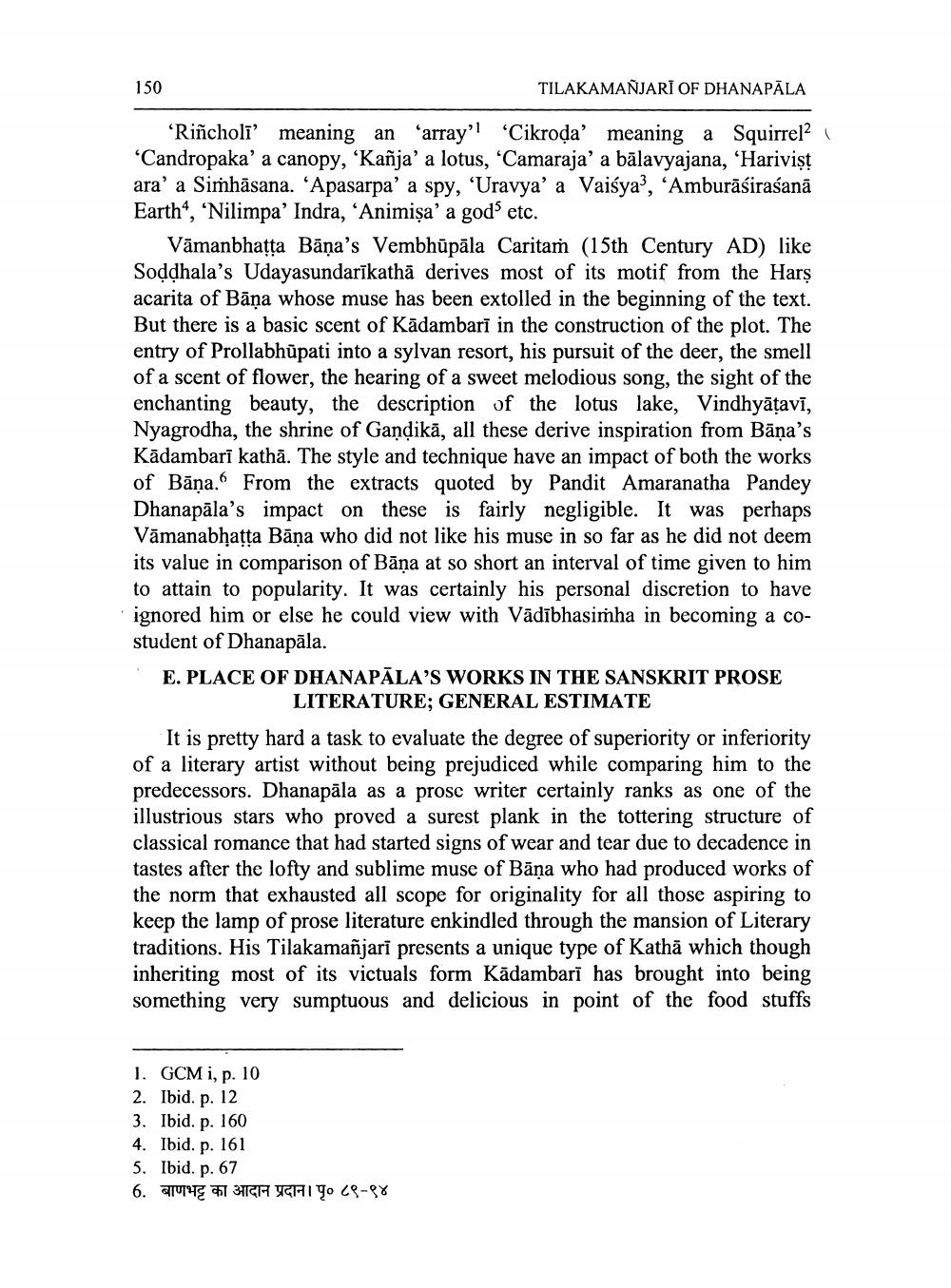________________
150
TILAKAMANJARĪ OF DHANAPĀLA
'Riñcholī' meaning an 'array' 'Cikroda' meaning a Squirrel2 'Candropaka' a canopy, Kañja' a lotus, 'Camaraja' a bālavyajana, 'Harivist ara' a Simhāsana. 'Apasarpa' a spy, 'Uravya' a Vaisya?, 'Amburāsirašanā Earth, 'Nilimpa' Indra, 'Animisa' a gods etc.
Vāmanbhatta Bāņa's Vembhūpāla Caritaṁ (15th Century AD) like Soddhala's Udayasundarīkathā derives most of its motif from the Hars acarita of Bāņa whose muse has been extolled in the beginning of the text. But there is a basic scent of Kādambarī in the construction of the plot. The entry of Prollabhūpati into a sylvan resort, his pursuit of the deer, the smell of a scent of flower, the hearing of a sweet melodious song, the sight of the enchanting beauty, the description of the lotus lake, Vindhyātavī, Nyagrodha, the shrine of Gandikā, all these derive inspiration from Bāņa's Kādambarī kathā. The style and technique have an impact of both the works of Bāna. From the extracts quoted by Pandit Amaranatha Pandey Dhanapāla's impact on these is fairly negligible. It was perhaps Vāmanabhatta Bāna who did not like his muse in so far as he did not deem its value in comparison of Bāņa at so short an interval of time given to him to attain to popularity. It was certainly his personal discretion to have ignored him or else he could view with Vādībhasimha in becoming a costudent of Dhanapāla. E. PLACE OF DHANAPĀLA'S WORKS IN THE SANSKRIT PROSE
LITERATURE; GENERAL ESTIMATE It is pretty hard a task to evaluate the degree of superiority or inferiority of a literary artist without being prejudiced while comparing him to the predecessors. Dhanapāla as a prosc writer certainly ranks as one of the illustrious stars who proved a surest plank in the tottering structure of classical romance that had started signs of wear and tear due to decadence in tastes after the lofty and sublime muse of Bāna who had produced works of the norm that exhausted all scope for originality for all those aspiring to keep the lamp of prose literature enkindled through the mansion of Literary traditions. His Tilakamañjarī presents a unique type of Kathā which though inheriting most of its victuals form Kādambari has brought into being something very sumptuous and delicious in point of the food stuffs
1. GCM i, p. 10 2. Ibid. p. 12 3. Ibid. p. 160 4. Ibid. p. 161 5. Ibid. p. 67 6. बाणभट्ट का आदान प्रदान। पृ०८९-९४




